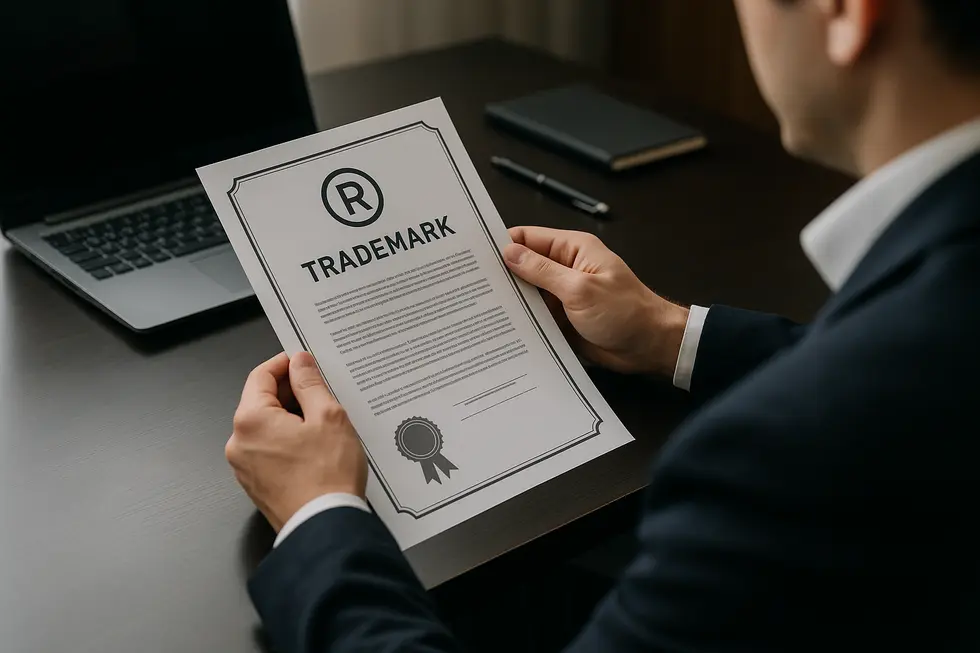Choosing the right name for your small business is a critical step toward building your brand identity. Many business owners wonder if they can include “Co”—a popular shorthand for “company”—in their business names. Understanding how and when to use “Co” depends heavily on your business structure, legal requirements, and jurisdictional rules. This guide explores three key facets to clarify your path: first, how “Co” functions in LLC and corporate names with legal designators; second, registration and compliance for sole proprietors and partnerships using “Co” in their trade or DBA names; and third, important state-specific considerations that influence naming conventions. By examining these chapters, business owners will be equipped to make informed naming decisions that comply with regulations and enhance brand appeal.
Navigating Legal Requirements When Using ‘Co’ in LLC and Corporation Names

Incorporating the term “Co” in your small business name when forming an LLC or corporation is a choice that many entrepreneurs consider for its marketable appeal and traditional connotation. However, while “Co”—an abbreviation for “Company”—adds a sense of professionalism or legacy, its use in official business names is governed by specific legal requirements and restrictions that vary by jurisdiction. Understanding these regulations is crucial to ensure your business name is legally compliant and preserves the protections afforded by your chosen business structure.
For limited liability companies (LLCs), state laws typically require that the business name clearly indicate the company’s limited liability status. This means including a legally mandated designator such as “LLC,” “L.L.C.,” “Limited Liability Company,” or occasionally alternatives like “Ltd. Liability Co.” Merely appending “Co” without this required suffix is generally insufficient. The reason for this strict naming convention is to alert the public, contractors, and other businesses of the liability protections and governance structures that differentiate an LLC from other forms of business entities, such as sole proprietorships or general partnerships. Thus, an LLC named “Anderson & Co.” would usually be deemed incomplete without the formal “LLC” designation, such as “Anderson & Co., LLC,” to satisfy legal standards.
Corporations face a similar set of naming rules. While “Co” can form part of the official name, it does not replace the mandatory corporate identifiers like “Inc.,” “Corporation,” or “Corp.” These suffixes serve to disclose the entity’s incorporation status. A corporation designated simply as “Baker Construction Co.” without an approved corporate identifier would likely not meet state requirements. Correct compliance entails naming your business “Baker Construction Co., Inc.” or a similar valid suffix that explicitly communicates the corporate status for legal clarity.
Beyond the inclusion of proper designators, states are vigilant about the uniqueness and clarity of business names. Your chosen name must be distinguishable from any other registered business within the same jurisdiction to prevent marketplace confusion. For example, another company called “Smith Consulting Co., LLC” cannot coexist with “Smith Consulting Co., LLC” in the same state. This ensures identities in commerce remain distinct and legally defensible.
Moreover, many states restrict or prohibit the use of certain terms in business names unless specific licenses or approvals are obtained. Words like “bank,” “trust,” or “insurance” fall under this category, requiring additional licensing and regulatory compliance. Adding “Co” without oversight will not override these restrictions. It is essential to review your state’s naming rules carefully, typically available through the Secretary of State’s office, before finalizing your business name.
Another critical angle is adherence to trademark law. Even if your state approves your business name, it must not infringe on existing registered trademarks nationally or within your market sector. Incorporating “Co” might distinguish your brand slightly, but it does not guarantee protection against trademark conflicts. For sustained brand security, consider trademark registration alongside your LLC or corporate filings. This dual layer of protection safeguards your identity beyond state-level registration and helps prevent costly legal disputes.
An illustrative example of appropriate naming might be “Greenfield Marketing Co., LLC.” Here, “Co.” enriches the brand identity and lends a familiar corporate feel, but the “LLC” suffix is indispensable to meet legal requirements. This combination ensures you communicate both your brand and your limited liability status clearly to clients, vendors, and regulators.
Similarly, a corporation could rightfully be named “Harper Design Co., Inc.,” where the “Co.” is part of the creative business name, while “Inc.” ensures compliance with state corporate naming laws. Failure to include these designators in official filings risks rejection of your registration or legal challenges down the line.
Given the subtlety and significance of these naming conventions, it is strongly recommended to consult your state’s Secretary of State website or business registration office for the most current rules. These resources often provide searchable databases to check name availability and guidance documents explaining naming protocols. Additionally, seeking advice from a legal professional specializing in business law can provide personalized recommendations and ensure your business complies fully with local, state, and federal regulations.
For a comprehensive understanding of protecting your business identity and navigating naming laws effectively, exploring resources on trademarks and brand protection can be invaluable. One such resource offers detailed insights into trademarking your business name and understanding how it complements your LLC or corporate registration ici.
In summary, while “Co” is a permissible and popular choice as part of your LLC or corporation’s business name, it is not a substitute for the legally required entity designators. Companies must include clear suffixes such as “LLC” for limited liability companies or “Inc.” and related forms for corporations to meet statutory requirements. Adhering to these rules not only ensures legal compliance but also provides important public notice about the nature of your business, protecting your limited liability status and helping maintain your brand’s distinctiveness within the marketplace.
Ensuring your business name complies with these legal standards from the outset lays the foundation for sustainable growth and protects your entrepreneurial efforts in the long term.
For further details on your state-specific naming rules and registration procedures, consult your Secretary of State office website, such as the Colorado Secretary of State business name guidelines at https://www.sos.state.co.us/.
Navigating Registration and Compliance When Using ‘Co’ in Sole Proprietor and Partnership Business Names

Incorporating “Co” into your small business name as a sole proprietor or partnership may seem like a simple branding choice, but it carries important legal implications that cannot be overlooked. Unlike registered entities such as LLCs and corporations that require formal designators (“LLC,” “Inc.”), sole proprietors and partnerships often operate under less stringent naming constraints. However, using “Co” creates an assumed or fictitious business name, which typically demands proper registration to ensure compliance with state and local regulations.
For sole proprietors who conduct business exclusively under their legal personal names—such as “Jane Doe”—there is usually no obligation to register the business name separately. But when you add “Co” or any other distinctive term to your name—for example, “Jane Doe Co”—this transforms your business name into a “doing business as” (DBA) name or assumed name. This means that your publicly facing business identity differs from your legal name, triggering the need for registration with the relevant authorities. This step is necessary to provide transparency to consumers and to avoid penalties for misrepresentation or operating without an official business name.
Partnerships face similar requirements. When the partnership name under which business is conducted does not fully mirror the partners’ legal names, the name must be registered. Using “Co” alongside partner names often creates a distinct brand that is treated as an assumed business name by regulators. Thus, partnerships must also undertake the DBA registration process to comply with applicable laws.
The process for registering a business name containing “Co” generally begins with a thorough name search. This ensures that the intended business name is not already in use by another entity or too similar to existing businesses, which helps prevent legal disputes or confusion in the marketplace. Searching databases maintained by state agencies or county clerks is typically the first step. If the name is deemed available, the next stage involves submitting the required application or registration forms along with any applicable fees.
The filing agency is often the county clerk’s office or the state’s business regulation department, depending on local rules. Some jurisdictions may also require a public announcement of your intent to register a fictitious name, commonly through a notice published in a local newspaper. This public notice step adds an additional layer of transparency and gives existing businesses the chance to voice objections if there is a potential for confusion or infringement.
While registering a DBA including “Co” does not confer the liability protection associated with forming an LLC or corporation, it offers tangible legal benefits. Crucially, registration protects your business name from being used by others in the same jurisdiction, allowing you to establish and maintain a unique marketplace presence. Additionally, it enables you to open business bank accounts under your DBA, strengthening your professional credibility with customers, suppliers, and financial institutions.
It is important to recognize that DBA registration rules and requirements vary significantly across states and even counties. In some regions, all businesses using assumed names—sole proprietors included—must file official registrations, while others exempt sole proprietors who stick to their full legal names. Registration fees, renewal intervals, and publication requirements also differ widely. This variability underscores the importance of researching your local regulations carefully to remain compliant.
For those planning to use “Co” in their business names, understanding these nuances is critical to avoiding unintentional violations. Failure to register a fictitious business name when required can result in fines, lawsuits, or challenges to your ability to operate under that name. It can also complicate efforts to build a trustworthy brand or protect your intellectual property.
Because laws change and vary by geography, consulting your state’s Secretary of State website or a knowledgeable legal professional is the best way to ensure your chosen business name—especially one including “Co”—meets all necessary requirements. This proactive approach helps safeguard your small business’s reputation and legal standing from the outset.
For a comprehensive guide detailing the registration process, filing requirements, and compliance considerations associated with assumed or fictitious business names, resources such as SmallBizTrends’ guide on registering business and DBA names provide valuable, up-to-date information.
Lastly, while this chapter focuses on the registration and compliance aspect, small business owners may also want to consider additional protections like trademarks to secure exclusive rights to their branding elements. For further insight on establishing legal safeguards beyond the business name, see our article on how to trademark your business name.
In summary, using “Co” in a sole proprietor’s or partnership’s business name transforms it into an assumed name that almost always requires registration. Understanding and fulfilling these legal steps upfront ensures you can confidently build your brand without risking penalties or business disruption.
Navigating State Requirements: Using ‘Co’ in Your Small Business Name with Confidence

When deciding to include “Co” in your small business name, understanding the specific rules of your state is vital for ensuring legal compliance and smooth registration. Business naming regulations vary considerably by jurisdiction, and the inclusion of “Co”—an abbreviation for “Company”—is no exception. Though commonly allowed, “Co” cannot always simply be tacked onto your business name without regard to other state-mandated requirements, especially those concerning entity designations, name uniqueness, and restricted terms.
Most states require that a business name be distinguishable from others already registered in their records. This means your proposed name cannot be too similar to existing ones even if the only difference is punctuation, capital letters, or common abbreviations like “Co.” For example, if “Green Leaf Co” is already registered as a business name, a similar name like “Green Leaf Company” or “Green Leaf Co.” may be rejected for being confusingly close. This rule serves to protect customers and other businesses from accidental misidentification or deception.
In addition, many states explicitly require that corporations, limited liability companies (LLCs), and similar entities include official designators that clarify the legal structure of the business. These typically include suffixes like “LLC,” “Inc.,” “Corp.,” or in some cases “Co.” In Colorado, for instance, “Co” is recognized as a legitimate designator equivalent to “LLC” or “Limited Liability Company” when used properly. However, simply adding “Co” to a sole proprietorship or partnership name does not transform it into an LLC or corporation legally. For these entity types, the full, proper designation must be present on formation documents to comply with state law and inform the public of the business’s legal structure.
If you are a sole proprietor or operating a partnership and wish to use “Co” in your business’s trade name or DBA (doing business as) name, the rules again require registration of that DBA with the appropriate state or local authority. This is essential for transparency and official records—helping to link your trade name to your personal or partnership identity in a clear manner. Each state has its own deadlines and processes for DBA registration; Colorado, for example, demands that DBAs be filed within 60 days of beginning operations under the assumed business name. Failure to comply can result in penalties or loss of business privileges.
Moreover, many states impose restrictions on certain words in business names, including “Co,” when used in connection with regulated industries or government-like entities. Words suggesting affiliation with banks, insurance companies, state agencies, or other protected sectors generally require prior approval. This helps prevent misleading consumers and controls use of sensitive industry terms. Even if you desire “Co” to create a commercial impression of professionalism or breadth, if your business activities are regulated, you must verify that the name aligns with permitted naming conventions.
In practice, these naming rules mean you should first perform a thorough search of your state’s business name database, often accessible via the Secretary of State’s website, before settling on a business name containing “Co.” These online databases typically include name availability checks and detail any existing conflicts. By confirming the uniqueness of your proposed name, you reduce the risk of rejection during the registration process and costly rebranding down the line.
Because the inclusion of “Co” may blur the lines between casual branding and formal legal designators, it is wise to verify how your state interprets this term. While some states allow it as an official designator for LLCs or corporations, others may permit it only as part of a trade name or restrict its usage altogether. For example, a name like “Smith & Co” may be perfectly valid as a DBA for a sole proprietor, but if planning to form an LLC, the registered name would need to be “Smith & Co LLC” or similar to satisfy entity disclosure requirements.
Understanding these distinctions is crucial for aligning marketing goals with legal obligations. Using “Co” can add a layer of professionalism and a sense of established business presence, but it cannot substitute for mandatory entity suffixes when forming formal business structures. Likewise, if using “Co” only in your DBA as a sole proprietor, ensure you register the DBA correctly and comply with any state-specific deadline.
In summary, incorporating “Co” into your business name requires careful attention to state naming rules. Checking for name uniqueness, meeting legal entity designation requirements, observing restricted word rules, and fulfilling DBA registration protocols all play a role in successful business naming. Consulting your state’s Secretary of State website offers authoritative guidance and resources, including searchable business name databases and filing instructions.
For an example of these requirements in action, the Colorado Secretary of State’s official business name regulations provide clear mandates on distinguishability, entity designators—including acceptance of “Co” for LLC names—and DBA filing deadlines. Similar frameworks exist nationwide, each with its own nuances requiring review before finalizing your business name.
To ensure your business name both stands out and complies with laws, combining this research with expert advice can safeguard your branding investment and registration success. More details about properly protecting your brand and business identity can be found in resources on les marques légalement protégées.
For precise state-specific naming protocols and database tools, consult your local Secretary of State resources. Colorado’s official guidance, for example, is available at the Colorado Secretary of State website to verify requirements when using “Co” in your LLC or DBA business name.
https://www.sos.state.co.us/
Dernières réflexions
Incorporating “Co” in your small business name is a popular and effective branding choice that can lend a timeless, professional aura to your business identity. However, whether you’re forming an LLC, corporation, or operating as a sole proprietor or partnership, using “Co” comes with distinct legal implications tied to your business structure and jurisdiction. LLCs and corporations must pair “Co” with required legal suffixes to comply with state laws, while sole proprietors and partnerships can use “Co” in registered trade or DBA names provided they meet registration requirements. Beyond structure, state-specific naming rules must be carefully researched to ensure your name is legal, unique, and non-misleading. With thorough preparation and compliance, “Co” can be an asset in crafting a memorable and legally sound business name that supports your long-term success.
Obtenez votre marque dès aujourd'hui ! Des milliers de personnes ont protégé leur marque en déposant une marque. Qu'attendez-vous ? Commencez à déposer votre marque !
A propos de nous
The globe’s top website for registering trademarks and safeguarding your brand, name, logo, or slogan, providing expert guidance and streamlined filing to protect your business identity.







